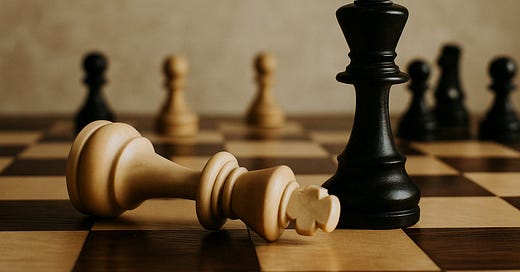Toxic love doesn’t usually begin with cruelty. It begins with warmth, attention, and a feeling of being seen in a way that catches people off guard. The charm, the long conversations, the emotional confessions—it all feels like a bond forming, something deep and meaningful. And for someone who has spent their life craving connection or has a history of being overlooked, this kind of intensity can feel like coming home.
That’s part of what makes it so dangerous. It never presents itself as harmful at the start. It wraps itself in affection, in compliments, in shared vulnerability. It makes people feel chosen. Special. Like they’re finally getting the kind of love they’ve always hoped for.
But slowly, the dynamics start to shift. The warmth becomes inconsistent. The person who once reached out constantly becomes harder to reach. Affection is given and then withheld. The communication patterns become unpredictable. One day you’re being told you’re everything; the next, you’re wondering what you did wrong to deserve the silence.
And yet, that inconsistency only makes people hold on tighter. They start to measure their worth through someone else’s reactions. They believe that if they could just do better, be calmer, be less needy, things would return to how they were at the beginning. That’s the psychological hook—when validation is given sporadically, it becomes addictive. The nervous system starts to associate anxiety with desire. The more unpredictable the relationship becomes, the more intense the emotional pull.
Over time, the dynamic becomes less about love and more about control. The person on the receiving end of this manipulation might start to change without even realising it. They begin to apologise more, even when they haven’t done anything wrong. They question their emotions. They stay silent to avoid conflict. And in doing so, they begin to disappear piece by piece.
What’s especially painful is that many people in this situation don’t see it clearly while they’re in it. They just feel exhausted. Confused. Constantly on edge. There’s a sense of walking on eggshells, of being unsure what version of the other person will show up today. They may start to blame themselves, thinking they’re too emotional, too sensitive, too much. And all the while, they keep trying—believing that if they just give more love, they’ll finally feel safe.
Eventually, something breaks. And it’s not always a dramatic event. Often, it’s something small. A moment where they realise their joy isn’t being met with interest. Or their pain is dismissed. Or they’re sitting beside someone who claims to love them but makes them feel completely alone. That quiet moment of clarity becomes a turning point. They may not act on it right away, but something inside shifts. They start to see the pattern for what it is.
The hard part isn’t always leaving. Sometimes, the hardest part is letting go of the belief that this is what love is supposed to feel like. It means untangling affection from anxiety. It means recognising that love isn’t supposed to be earned through emotional labor or self-erasure. Real love doesn’t need to be chased. It shows up. It stays. It creates safety instead of fear.
The aftermath of these kinds of relationships is often filled with confusion, grief, and self-doubt. Even after it ends, many people find themselves flinching at kindness, questioning peace, and struggling to trust new connections. That’s the invisible cost of a relationship built on power games—it teaches people to expect pain and to fear stability. But healing is possible. It begins with unlearning. With recognizing that chaos is not the same as passion, and silence is not the same as safety. It begins when someone decides to choose peace, even when peace feels unfamiliar.
And maybe that’s the most powerful thing of all: walking away from something that once felt like everything. Choosing to break the cycle instead of continuing the game. Understanding that being chosen isn’t meaningful if you have to lose yourself to be picked.
Some love stories don’t need a second chance. Some games were never worth playing in the first place. The real victory comes when you stop calling it love and start calling it what it was—a wicked game.
If you saw pieces of yourself in these words, I want you to know you’re not alone. These games can be so subtle, so seductive, that we don’t even realise we’re playing until we’ve forgotten how to breathe without tiptoeing.
But you deserve more than survival. You deserve love that doesn’t feel like punishment.
Thank you for being here, for reading, for witnessing this with me.
With love,
Salwa
I write Quietly Becoming for those who crave honest, raw reflections on growth, boundaries, and mental well-being. If you found this helpful, join the subscriber community for exclusive deep dives, personal insights, and practical tools to support your own journey.
If my work resonates with you, please consider pledging your support to help keep Quietly Becoming going. Your support allows me to continue creating meaningful content that speaks to the heart.






Beautifully written, Salwa. You've described toxic relationships so perfectly and so personally without technicalities. I don't think I've ever experienced a love where I feel safe as you describe: " Real love doesn’t need to be chased. It shows up. It stays. It creates safety instead of fear." But that's okay because I can create safety for myself and won't go back to toxic relationships.
Thank you Salwa....this is spot on. I ended it ( absolutely no contact) Then started putting the pieces of me back together.... I've read it can take 18 months to rebuild neural pathways...